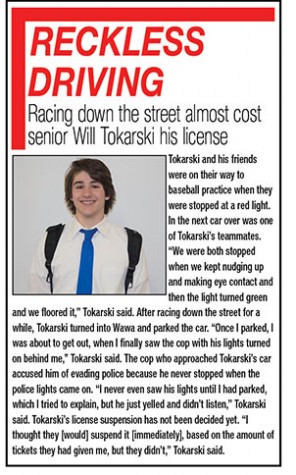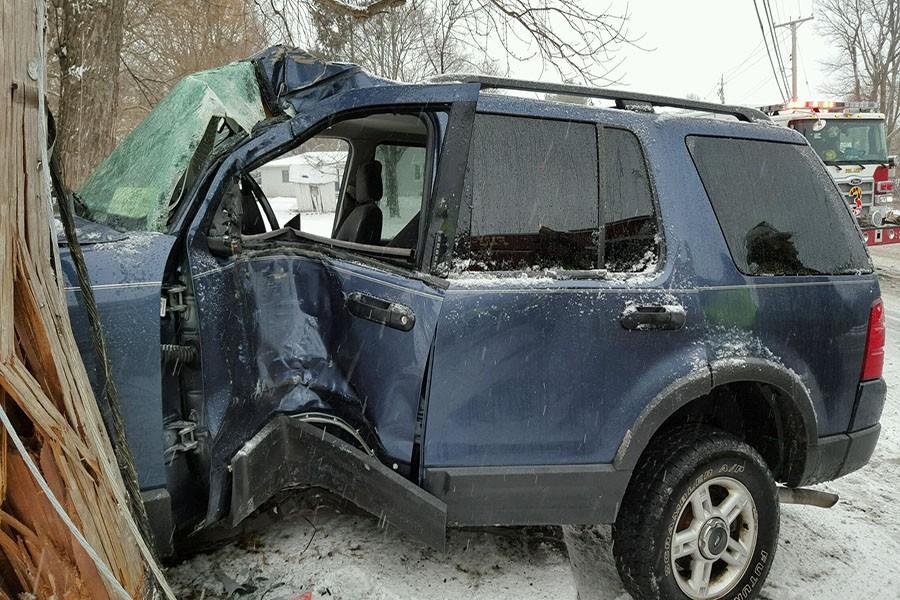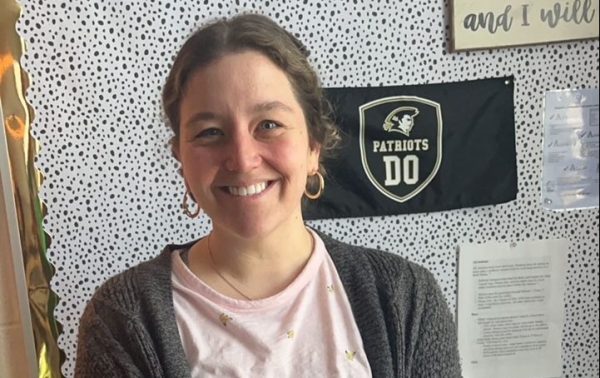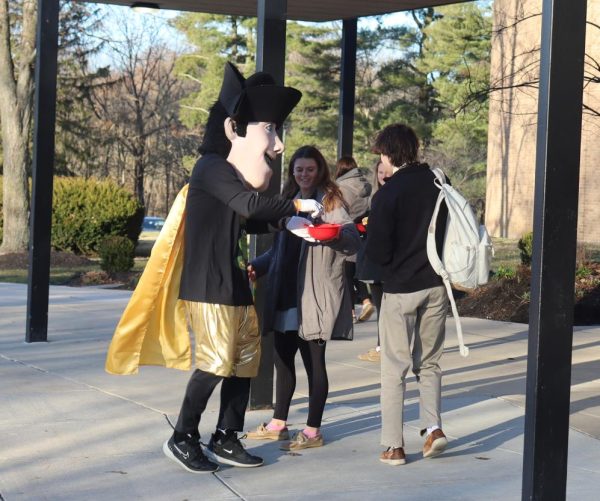Clear the roads for new drivers
Every day, students get their driver’s licenses, meaning more new drivers and potentially more dangerous car accidents
Photo courtesy Caroline Angert
Senior Caroline Angert’s car was completely wrecked after slamming into a telephone pole. Angert was driving when her car hit a patch of ice and she lost control of the wheel.
 Pulled over by police, senior Hayden Delphi was asked to have his car searched after speeding down the road. “It was 2 a.m., and I wanted McDonalds, the 24-hour McDonald’s was closed and no one was on the road when I pulled out so I just sped up,” Delphi said. He was driving his dad’s new Audi, “I’d never driven in it before. It was a lot faster than I thought. Let’s just say I was going over 80,” Delphi said.
Pulled over by police, senior Hayden Delphi was asked to have his car searched after speeding down the road. “It was 2 a.m., and I wanted McDonalds, the 24-hour McDonald’s was closed and no one was on the road when I pulled out so I just sped up,” Delphi said. He was driving his dad’s new Audi, “I’d never driven in it before. It was a lot faster than I thought. Let’s just say I was going over 80,” Delphi said.
Police proceeded to ask Delphi if he was a drug dealer. “The car was new, and it had the Florida license plate tags, and I didn’t realize,” Delphi said. The officer then asked to search through the car. After the car came up clean, he gave Delphi a ticket, and Delphi drove home, trying to push the incident out of his mind.
“I didn’t tell my parents [about the incident] for a week. They were so upset with me.” Consequently, for recklessly driving around town in the middle of the night in search of a Big Mac, Delphi would soon be going on trial to defend himself in lieu of his nighttime speeding incident.
In 2013, 2,163 teens in the United States ages 16-19 were in a fatal car accident. Being a new driver makes one statistically more likely to be in an accident or be involved in a reckless driving incident.
Car accidents and being pulled over by the police are common in student drivers. Even after having your license for over five months, “for both men and women, drivers aged 16 to 19 years of age have the highest average annual crash and traffic violation rates of any other age group,” according to the California Motor Vehicle Association.
JC students know all too well the aftermath of accidents. Not all accidents on the road have to be careless or even rushed, something as natural as ice on the road, could potentially be deadly, if not careful.
On Feb. 15, senior Caroline Angert smashed her car into a telephone pole after her car slid on a patch of ice and started fishtailing. “My car started heading into oncoming traffic, so I pulled my steering wheel hard to the right, and I started sliding. My car hopped the curb, and I hit a telephone poll,” Angert said.
After the accident, Angert decided to take a break from driving. “I was scared to drive with other people for about a week, but now I’m okay, and I drive like nothing happened,” Angert said. In Angert’s case, her accident could have been deadly for herself and those around her. However, not all accidents are major.
Junior Nick Hinke has often been regarded as an “accident-prone” driver. “I’m not that bad,” Hinke said. “My car just likes to run into stuff.”
On Christmas, while leaving a friend’s house to go see his grandparents, Hinke was blocked in by several cars on the street. “I was blocked in and the guy had to pull onto the lawn to let me out cause there were cars parked on both sides of the driveway,” Hinke said. After realizing a pickup truck was still blocking him, Hinke decided to see if he could make it out without telling the owner to move his car.
“I thought I could make it anyway, so I went for it and the first few feet went fine while it was still straight but as I had to turn, the truck’s bumper caught my left side and left a big dent and a nice scrape on the driver’s side,” Hinke said.
According to DoSomething, an organization that motivates teenagers to live out good acts in society, stated on their website that “16-year-old drivers have the highest crash rates out of any other age.” Whether you’ve been driving for two days or two years, you are still at risk for an accident.
“My advice would be to talk about it. Especially if you’re scared. It helps a lot if you’re open with it,” Angert said.
Azanae Barrow is a Community Editor for The Patriot and jcpatriot.com.






